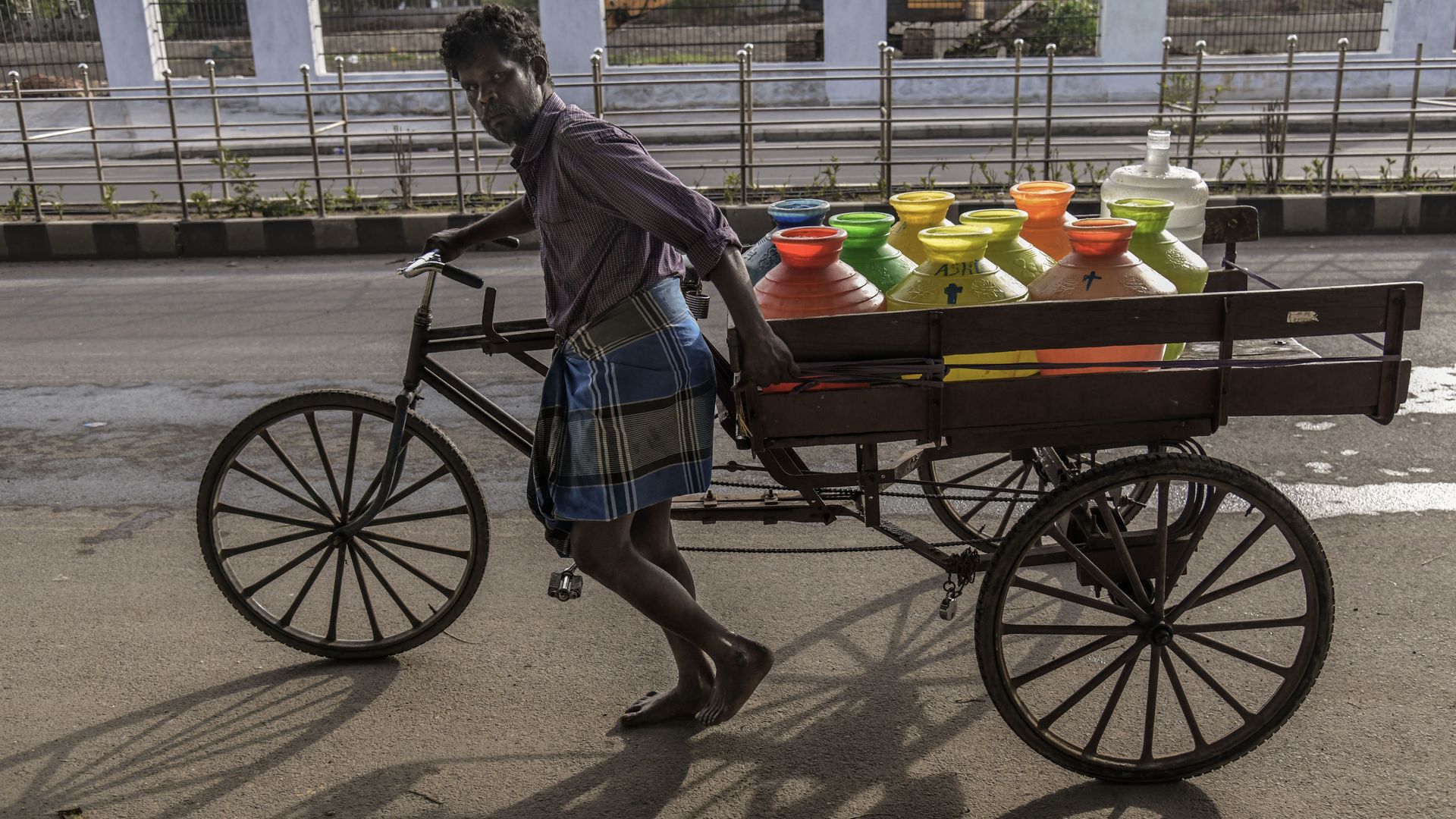A dangerous combination of hot and dry weather, poor water management and rising demand is leaving cities such as Chennai, India, and Harare, Zimbabwe, without water for days on end.
The big picture: The pressures on municipal water supplies are likely to worsen with the effects of climate change. Cape Town, South Africa, narrowly averted its “Day Zero” last year, but cities in 17 other countriesclassified as high stress could soon face their own water crises.
Where it stands:
- Overuse and drought have dried up the 4 reservoirs serving the 9 million residents of Chennai, India’s 6th largest city, and the annual monsoon barely eased the shortage. Since mid-July, a daily train has delivered 2.5 million liters of water from a dam 125 miles away, yet many taps have still gone dry.
- The 2 million people of Harare, Zimbabwe’s capital, turn to shallow wells and ditches to supplement the water piped in once a week. Of the city’s 4 reservoirs, 2 are dry and the other 2 are so polluted by raw sewage and industrial waste that their water must be heavily treated before piping. A shortage of chemicals has led to a decommissioning of 1 water-treatment plant and inadequate supply from another, as well as an uptick in waterborne diseases.
Between the lines: Weather alone is not to blame.
- Chennai’s natural rainwater collection systems and aquifers have been completely neglected. Deep-well drilling by industry and agriculture has gone unregulated, and the government’s recent attempts to encourage rainwater harvesting have met with limited success.
- In Harare, decades of underfunding have led to crumbling infrastructure, leaky pipes and widespread water theft.
What’s next:
The bottom line: Without significant investments in plugging leaky pipes, improving agricultural efficiency, harvesting rainwater and mandating conservation, 45 cities — home to 450 million people — could see their taps dry up by 2030.
Tanvi Nagpal is the director of the International Development Program at Johns Hopkins School of Advanced International Studies.



